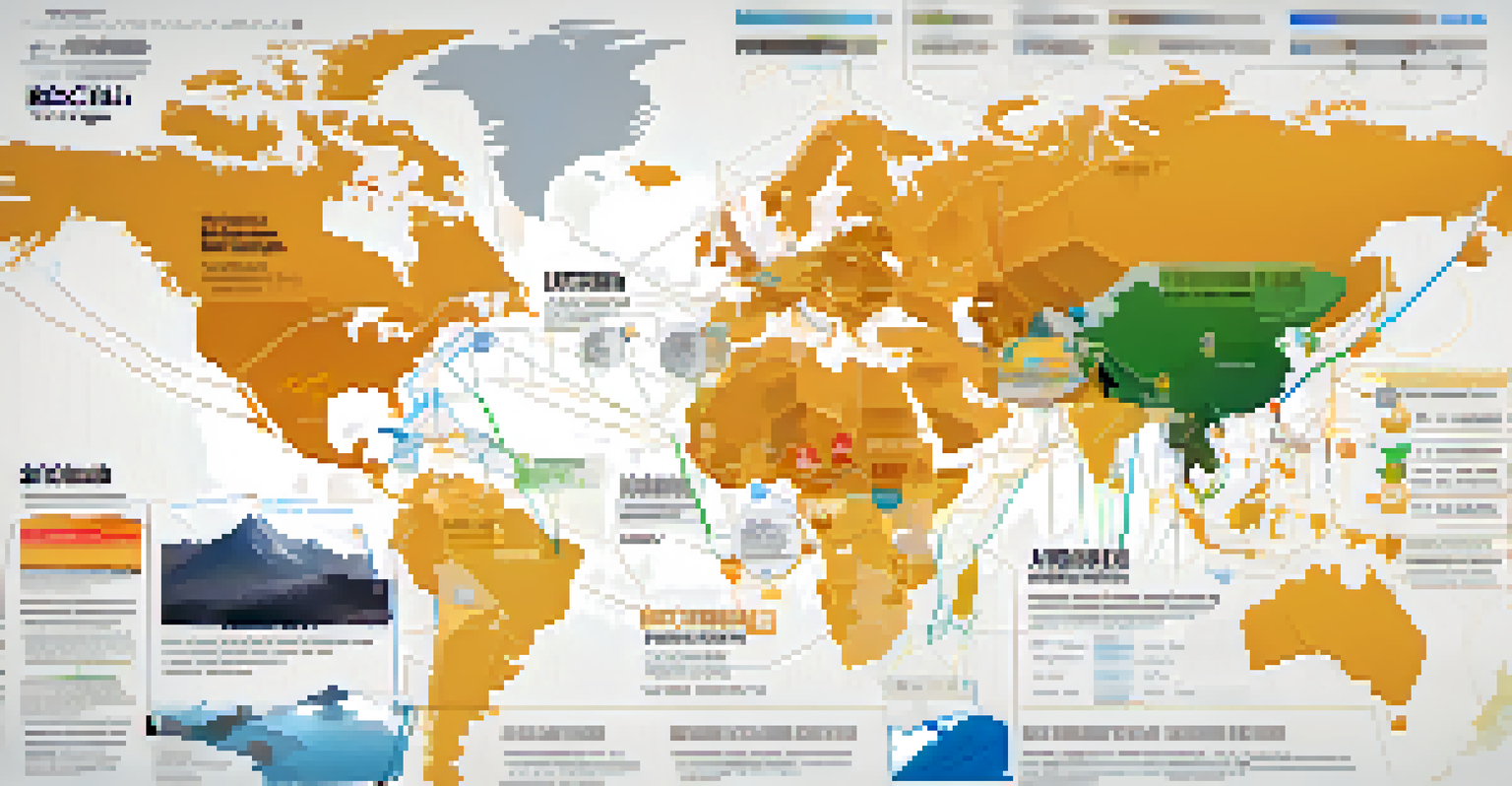Bitcoin Mining and Its Effects on Wealth Inequality

Understanding Bitcoin Mining: A Brief Overview
Bitcoin mining is the process by which new bitcoins are created and transactions are verified on the blockchain. Miners use powerful computers to solve complex mathematical problems, which helps maintain the security and integrity of the network. This process requires substantial computational power and energy, making it a significant investment.
Bitcoin mining is not just about creating new coins; it’s about maintaining the integrity of the entire network and ensuring that transactions are verified securely.
As the demand for bitcoins increases, so does the competition among miners, leading to a race for technological advancements. However, this escalating competition can create barriers for smaller miners, as larger players often dominate the landscape with their resources. This dynamic raises questions about accessibility and fairness in mining.
In essence, while Bitcoin mining is crucial for the cryptocurrency’s operation, it also creates a landscape where financial resources play a pivotal role. As we delve deeper into its implications, it’s essential to understand how this impacts wealth distribution across different demographics and regions.
The Energy Consumption Debate in Bitcoin Mining
One of the most contentious aspects of Bitcoin mining is its energy consumption. The process requires vast amounts of electricity, leading to concerns about its environmental impact. Critics argue that this consumption is unsustainable and highlights the disparities in energy access, especially in developing countries.

In regions where electricity is abundant and cheap, mining operations flourish, often benefiting wealthier individuals or corporations. Conversely, in areas with limited resources, the high cost of energy can prevent participation in mining activities, exacerbating existing inequalities. This situation creates a divide between those who can afford to mine and those who cannot.
Wealth Disparities in Bitcoin Mining
Bitcoin mining creates significant financial inequalities, favoring larger operations and leaving smaller miners at a disadvantage.
The energy debate not only underscores the environmental implications but also reflects broader issues of wealth inequality. As we continue to explore these themes, it's crucial to consider how energy policies and availability influence who gets to participate in the Bitcoin economy.
The Role of Technology in Mining Accessibility
Technology plays a significant role in shaping the Bitcoin mining landscape. Advanced mining hardware, such as ASICs (Application-Specific Integrated Circuits), allows miners to operate more efficiently. However, the high cost of such equipment can create a barrier to entry for smaller or less financially stable miners.
The technology that drives Bitcoin mining has the potential to create both opportunities and disparities, shaping the economic landscape in ways we are just beginning to understand.
As technology continues to evolve, so too does the disparity in access. Larger operations that can afford the latest technology often dominate the market, leaving smaller miners at a disadvantage. This dynamic can lead to a concentration of wealth among a few individuals or companies, further entrenching wealth inequality.
In this context, it's essential to recognize that while technology drives progress, it can also exacerbate disparities. As the mining landscape evolves, understanding the implications of technological advancements on wealth distribution becomes increasingly vital.
Geographical Disparities in Bitcoin Mining Operations
Bitcoin mining is not just a digital endeavor; it has tangible geographical implications. Regions with favorable conditions, such as low electricity costs or favorable climates, attract more mining operations. This geographical concentration can lead to wealth accumulation in specific areas while neglecting others.
For example, places like Iceland and China have become popular for mining due to their cheap electricity and cool climates, which help mitigate the overheating of mining rigs. However, this also creates a scenario where wealth and resources are funneled into these regions, leaving others struggling to keep pace.
Environmental Impact of Mining
The high energy consumption associated with Bitcoin mining raises environmental concerns and highlights disparities in energy access.
This geographical disparity highlights the uneven playing field within the Bitcoin mining ecosystem. As we explore the effects of mining on wealth inequality, the impact of location cannot be overlooked.
How Bitcoin Mining Affects Local Economies
Bitcoin mining can have significant effects on local economies, both positive and negative. In regions where mining operations are established, they can create jobs and stimulate economic growth. However, the benefits are often skewed towards those who own the mining facilities rather than the local population.
Moreover, the influx of miners can drive up demand for local resources, such as housing and electricity. This can lead to increased costs for residents, further widening the gap between miners and the local community. In this way, while mining can bring investment, it can also exacerbate wealth disparities.
Understanding these local economic impacts is crucial, as they illuminate the broader consequences of Bitcoin mining on wealth inequality. It’s a complex relationship that requires careful consideration of both the benefits and drawbacks.
The Psychological Impact of Wealth Disparity in Mining
The wealth generated from Bitcoin mining can lead to psychological effects on both miners and those excluded from the process. For miners, the potential for significant earnings can create a high-stakes environment filled with pressure and competition. This can foster a mindset focused on accumulation at the expense of community and collaboration.
On the other hand, those who find themselves on the outside looking in may experience feelings of frustration and disenfranchisement. The stark contrast between miners' wealth and the average person's situation can lead to a sense of helplessness and contribute to broader societal tensions regarding wealth inequality.
Local Economies Affected by Mining
While Bitcoin mining can stimulate local economies by creating jobs, it often exacerbates wealth gaps within communities.
Addressing these psychological dimensions is crucial in understanding the full impact of Bitcoin mining. As we consider the economic implications, we must also recognize how these dynamics shape individual and community experiences.
Future Outlook: Can Bitcoin Mining Become More Equitable?
As the cryptocurrency landscape evolves, so does the conversation around Bitcoin mining and its implications for wealth inequality. There are growing calls for more equitable practices, such as community-driven mining initiatives and sustainable energy solutions. These approaches aim to democratize access to mining and reduce environmental impacts.
Additionally, innovations like proof-of-stake mechanisms are emerging as alternatives to traditional mining, potentially leveling the playing field. By reducing the reliance on computational power, these methods may open doors for broader participation and lessen the concentration of wealth.

Looking ahead, the future of Bitcoin mining remains uncertain, but there is hope for more equitable practices. As stakeholders in the cryptocurrency community prioritize inclusivity and sustainability, we may see a shift toward a more balanced distribution of wealth.